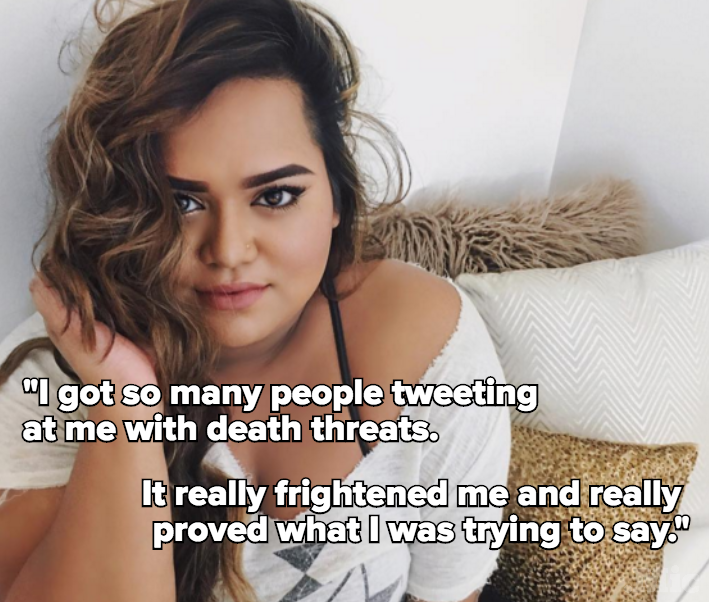
Last January, Youtube and Google invited Muslim beauty vlogger Nabela Noor to ask Jeb Bush a pre-taped question at the GOP Fox News debate. She asked the following: ““As president, what would you do to address this toxic [anti-Muslim] climate and promote increased tolerance in the United States?”
Ms. Noor, who has over 167,000 YouTube subscribers and 40,000 Instagram followers, was praised from many in the media and received a thoughtful response from Jeb Bush. But there were also severe repercussions –death threats, graphic images and hate speech filled her in-box. “I was now not just Nabela Noor, the beauty vlogger, but I was also Nabela Noor, the girl that spoke at the GOP debate about Islamophobia and so with that came a lot of negativity and backlash,” says Ms. Noor. “There is an existence of intolerance and it’s only getting louder.”
The intolerance continued into March when many popular Muslim beauty and fashion Instagram accounts were hacked, replaced with Islamophobic memes and videos featuring Trump. Ms. Noor has a theory that the depictions of Muslim women in empowering situations (hijabi fashion) and normal environments (makeup lessons) are a direct threat to the hackers. “I think that if I promote that narrative of ‘I’m just like you and I’m applying makeup,’ it doesn’t help that narrative that we’re dangerous or threatening or bad.”
According to Ikhlas Hussain, who runs the popular blog “Muslim Girl,” the political climate has much to do with the spike in anti-Muslim online abuse. “There’s a lot of negative feelings towards Muslims in the media and we aren’t portrayed well at all, and so it carries over to the online world as well.”
Ms. Noor adds, “If you are a Muslim online communicator and you are vocal about your faith, you are then subjected to even more hate.”



